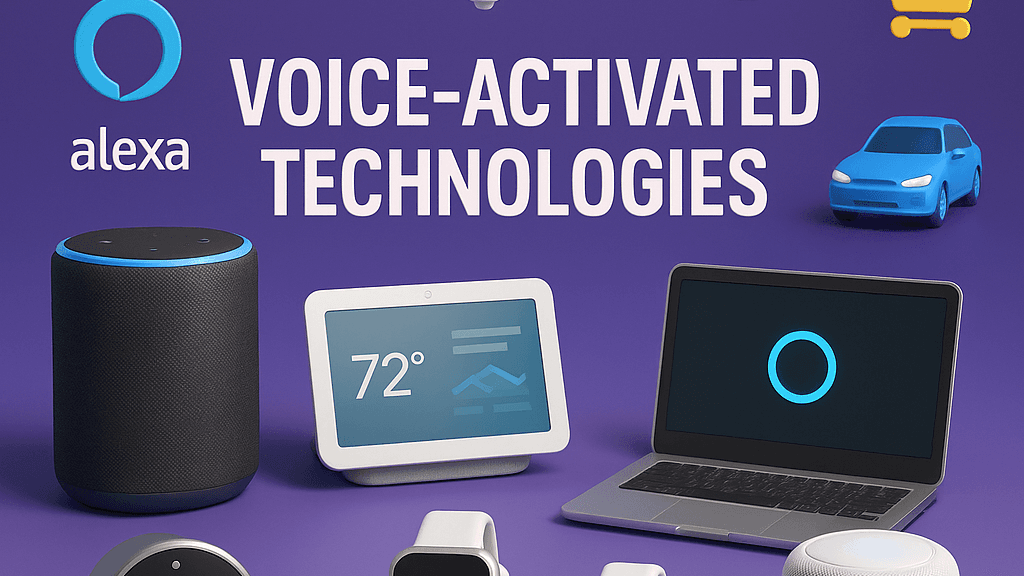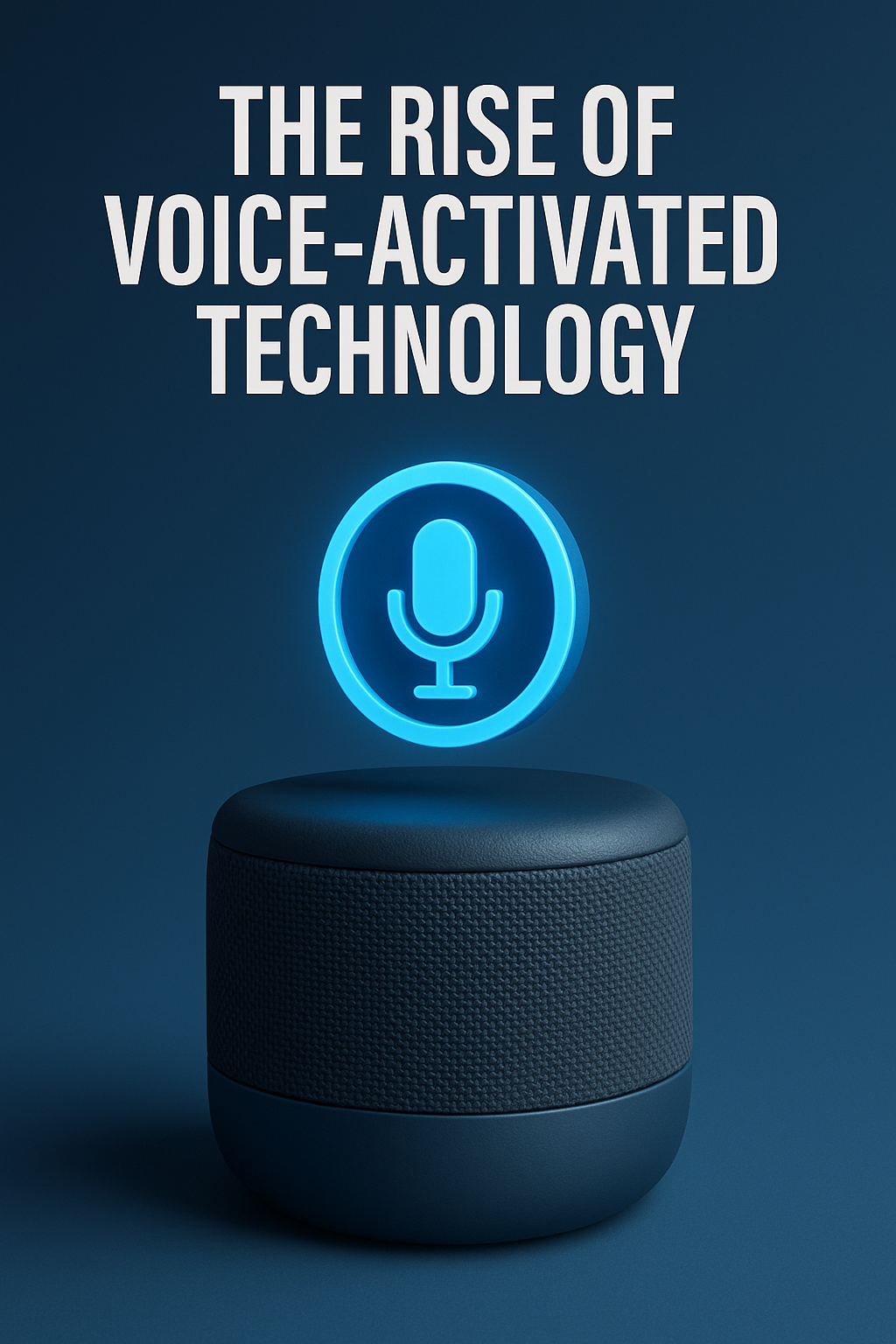A New Era Of Natural Interaction: Voice Activated Technology

Voice activated technology is a revolution in human computer interaction, making our relationship with technology more intuitive, efficient, and inclusive.
Voice-activated technology is rapidly reshaping the way we communicate with and control technology. Once considered a futuristic concept, it has now become a daily reality, powering everything from smart speakers to advanced home automation systems.

A New Era of Natural Interaction
Modern voice technology has reached remarkable levels of sophistication. Today’s systems can understand and process natural human speech with impressive accuracy, thanks to advancements in artificial intelligence and natural language processing (NLP). Unlike earlier versions that required rigid command structures, current voice assistants interpret context and nuances in speech, making interactions more fluid and human like.
Everyday Applications and Benefits of Voice-Activated Technology
Voice-activated technology has moved far beyond its early role on smartphones and is now embedded in nearly every aspect of modern life. From homes and vehicles to workplaces and public spaces, this technology is revolutionizing how we interact with the world.
Smart Homes and Entertainment
Devices such as Amazon Echo and Google Home have become central to smart living, allowing users to:
Play music on demand
Control home lighting and climate
Set alarms and reminders
Shop online
Answer general knowledge questions
Enhanced Vehicle Safety
Voice technology in cars helps drivers keep their hands on the wheel and eyes on the road while:
Making calls
Sending and reading messages
Managing navigation
Controlling infotainment systems
Customer Service and Business Operations
Voice-enabled customer support bots are widely used to:
Answer queries
Handle transactions
Reduce call center wait times
Provide 24/7 support
Beyond convenience, voice activation improves accessibility for individuals with disabilities, enabling hands-free operation for those who may have difficulty using traditional interfaces.
Top 20 Voice-Activated Technologies and Their Uses
Amazon Alexa – Controls smart home devices, plays music, answers questions, online shopping.
Google Assistant – Provides voice-based search, controls smart devices, integrates with Google services.
Apple Siri – iOS-based voice assistant for messaging, calls, and app integration.
Microsoft Cortana – Productivity assistant integrated with Windows and Microsoft 365.
Samsung Bixby – Voice assistant for Samsung devices and smart appliances.
IBM Watson Assistant – Enterprise-level voice AI for customer service automation.
Nuance Dragon – Advanced speech recognition for healthcare and business documentation.
Sonos Voice Control – Voice commands for multi-room audio systems.
Baidu DuerOS – AI voice platform for smart devices in China.
SoundHound Houndify – Voice AI for developers to build custom assistants.
Cortana in Vehicles – Integrated into some cars for hands-free navigation and calls.
BMW Intelligent Personal Assistant – Controls car functions, navigation, and entertainment.
Amazon Echo Auto – Brings Alexa into cars for voice control on the road.
Google Nest Hub – Smart display with voice controls for home automation.
Apple HomePod – Smart speaker powered by Siri for music and home automation.
Alexa for Business – Voice-activated controls for conference rooms and office workflows.
Google Assistant in Wearables – Provides voice controls on smartwatches for fitness and messaging.
Cortana in Office 365 – Assists with calendar management, emails, and reminders.
Voice-Activated ATMs – Allow visually impaired users to perform banking transactions.
Voice-Powered Healthcare Tools – Used by doctors for dictation, patient records, and data entry.
As voice recognition systems continue to evolve, we can expect more personalized, context-aware interactions. Integration with AI-driven predictive models will allow devices to anticipate user needs, creating an even smoother experience. From healthcare to education, the possibilities for voice technology are virtually limitless.
Voice-activated technology is a revolution in human-computer interaction, making our relationship with technology more intuitive, efficient, and inclusive.